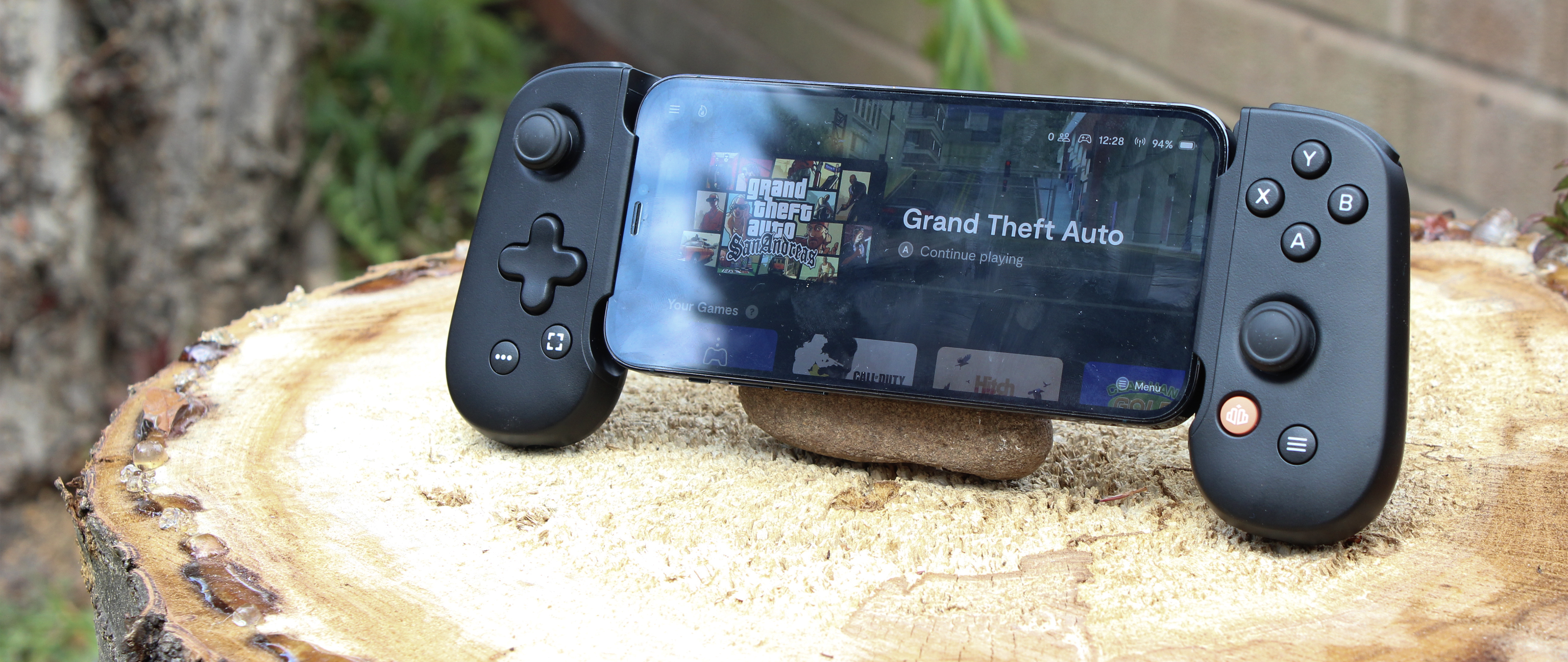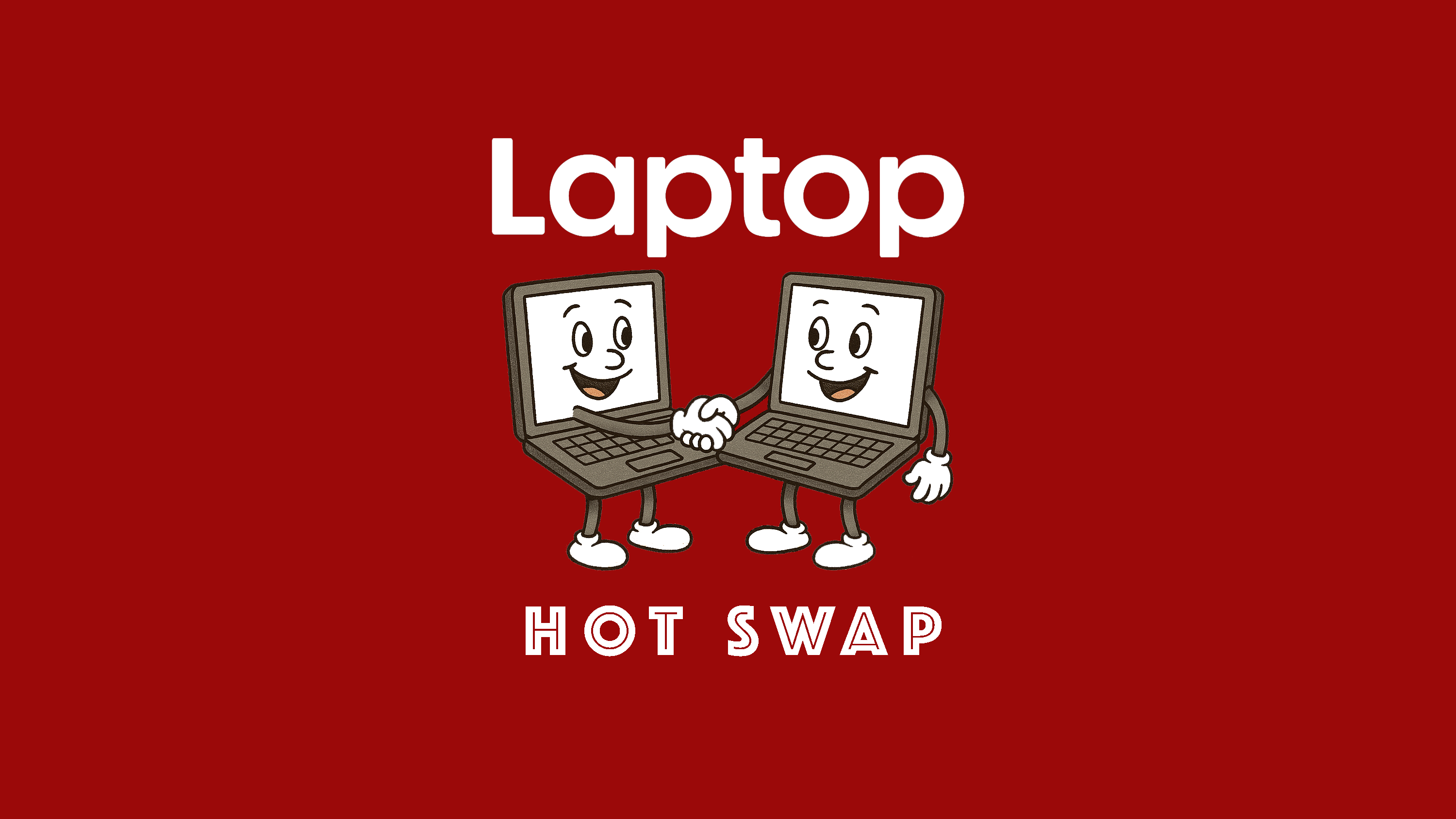Laptop Mag Verdict
From the elegant hardware to the software integration, the Backbone One transforms your iPhone into a portable console that could change your mobile gaming experience for good.
Pros
- +
Sleek, comfortable design
- +
Tactile buttons
- +
Lightning and 3.5mm headphone pass-through
- +
Seamless, multi-functional app
- +
Makes mobile gaming addictive
Cons
- -
Expensive
- -
Half-baked social features
- -
Restricted case support
Why you can trust Laptop Mag
Mobile games suck — at least I thought they did until I picked up Backbone One.
My experiences with gaming on my cell phone started with Snake 2 on my Nokia 3310, then moved over to playing Tony Hawk on my Sony Ericsson T310, and thanks to one of my richer friends at school, Tomb Raider on the Nokia N-Gage.
Over the past few years, we’ve seen an influx of creativity and quality flood the mobile gaming space — from cramming console-like experiences onto a phone screen, to truly ingenious, addictive experiences that'll impel you to spend hours playing without regret.
Need proof? I’ve been regularly blown away while updating my best Apple Arcade games list every month. And I don’t even need to mention console remote play and the Xbox Game Pass Ultimate cloud gaming service (coming to iOS soon).
However, there’s been one big problem the industry has yet to solve: the interface. The use of on-screen buttons to play console titles like Grand Theft Auto: San Andreas makes the whole thing a laborious experience that ruins the game and frustrates you more than Big Smoke telling you to “follow the damn train.” You end up covering half the screen with your hands in a claw-like shape, trying to do convoluted button combinations. Then, your palm presses some action buttons accidentally. It’s grim.
So, what’s the key that could unlock mobile gaming to the millions who want to have a good time playing on their phone? One former YouTube product developer believes the answer to that is the Backbone One — a gaming controller that turns your iPhone into a Nintendo Switch look-alike.
Backbone One: Price
Let's address the elephant in the room, which happens to be wearing a pretentious monocle and top hat (as all stereotypical rich snobs do).The Backbone One is pricey at $99.99. While that matches the price of the Razer Kishi, a search for “iPhone game controllers” on Amazon will show you cheaper options.
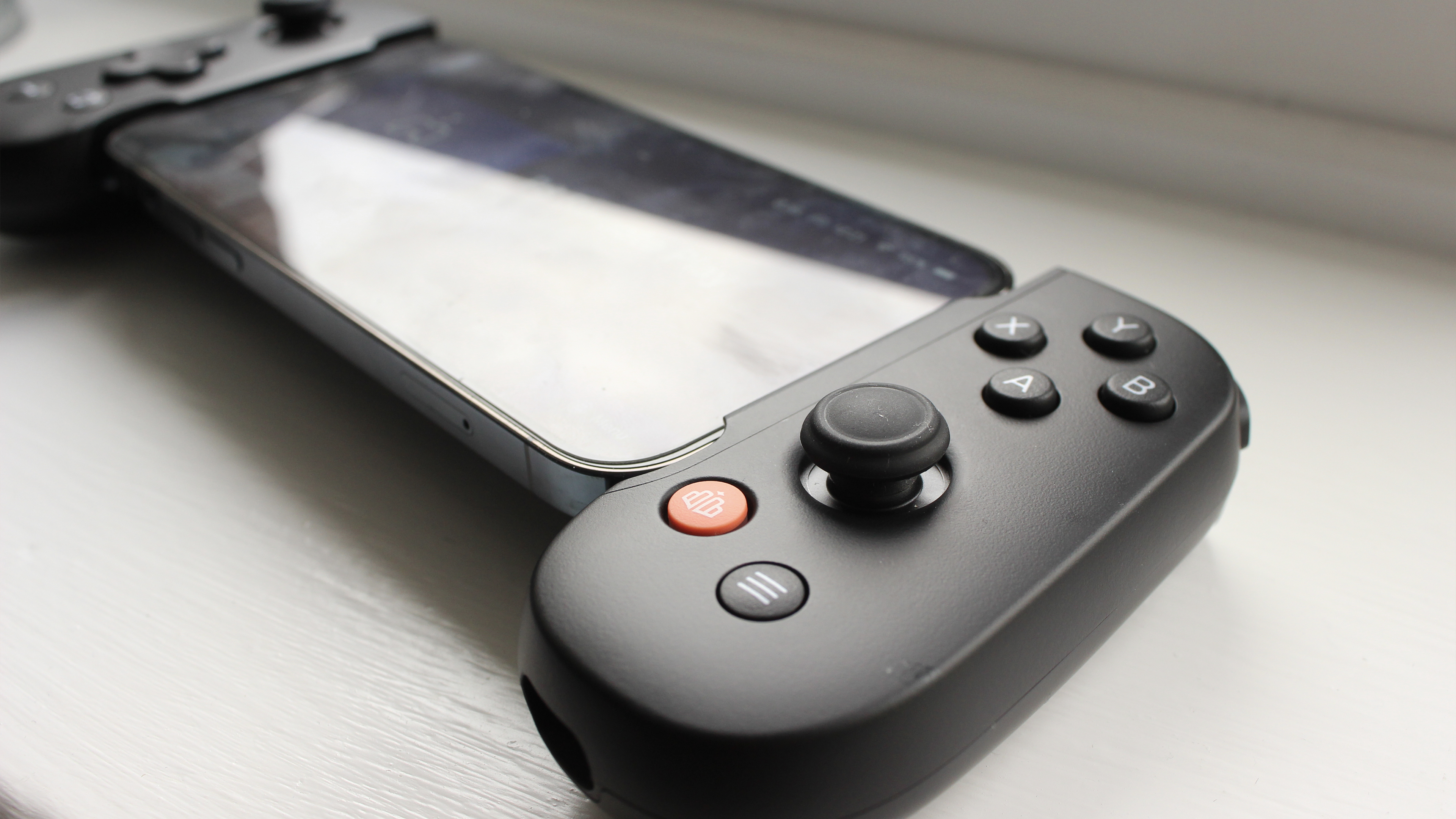
Don’t get me wrong, these economical options won’t offer the same quality control nor software support, but if your main motivation is getting something as inexpensive as possible, the Backbone isn’t it.
For my fellow Britons reading this, at the time of this writing, the $100 price tag plus the extra $30 for shipping brings the cost to around £94. That’s roughly 20 quid more than buying a Kishi here.
Backbone One: Design
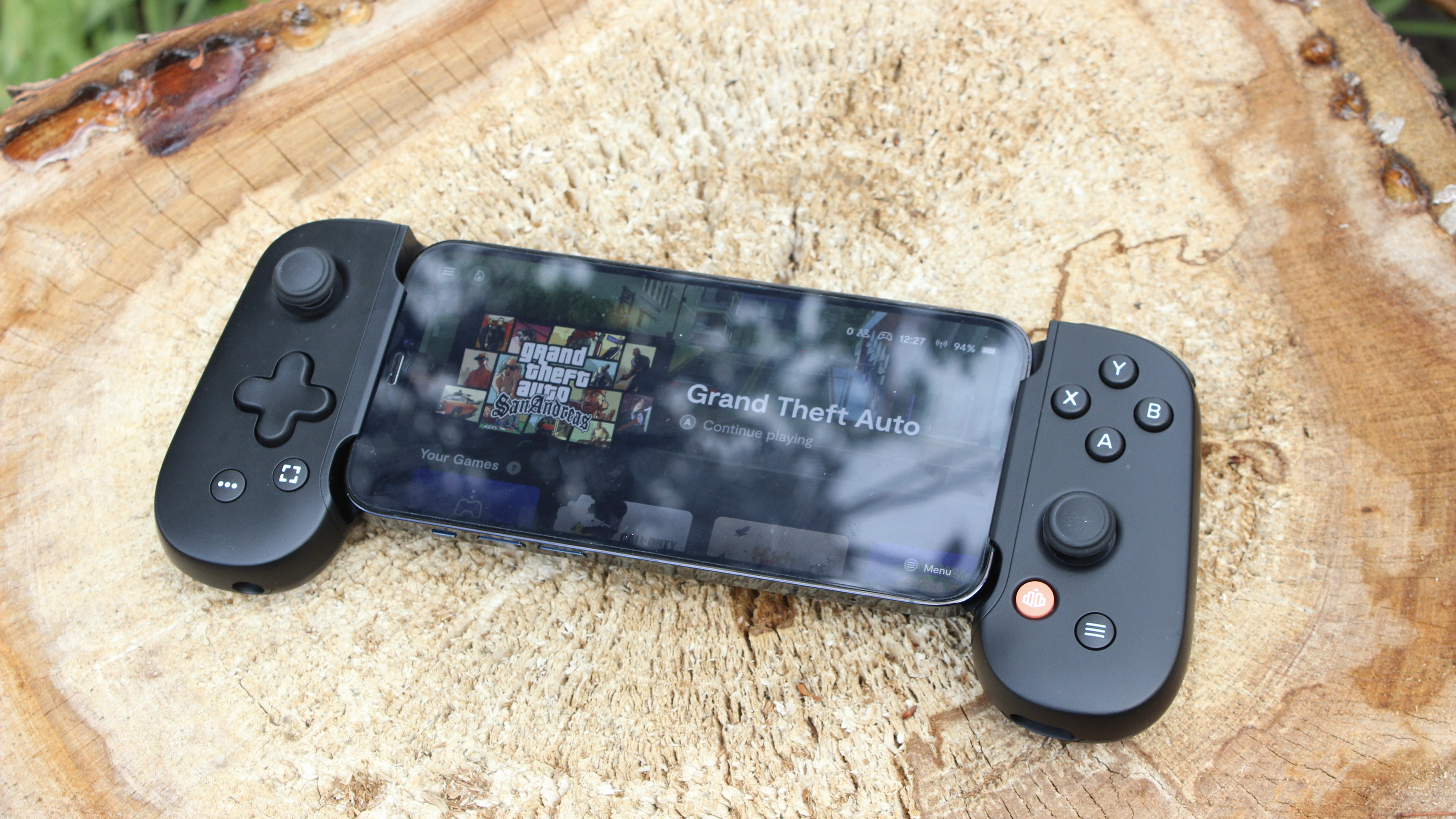
Let's start with the one element Backbone One must get right: hardware.
It is a controller adaptor that uses Apple’s Lightning connector for the lowest possible latency, and the premium build quality utilizes a soft-touch plastic for extra durability and comfort during even the most intense sessions.
Buttons are as clicky and tactile as you’d expect from any of the current crop of console controllers with ultra-responsive analog triggers and reliable joysticks. Beyond the required controls for anything you play are custom buttons that interact with the Backbone app (more on that later).
As far as looks and controller layout goes, it would be fair to say that Backbone has taken some cues from the Nintendo Switch. In fact, if I’m being honest, this is more comfortable than the Switch Joy-Con controller.
You see, I love playing Zelda on-the-go, but the weight and flat-back design of the Joy-Cons make it an uncomfortable slate after a while, whereas the curvature of the Backbone One and its lightweight design make it more enjoyable to use over a long period of time.
One issue anyone as clumsy as myself may face is the limited case support. Some slimmer covers do fit into the Backbone One’s frame; I’m not saying it should fit the likes of a beasty Otterbox, but there’s a whole range of cases between those two extremes that iPhone customers buy to protect their purchase. It makes me a little nervous to remove that protection when I play games.
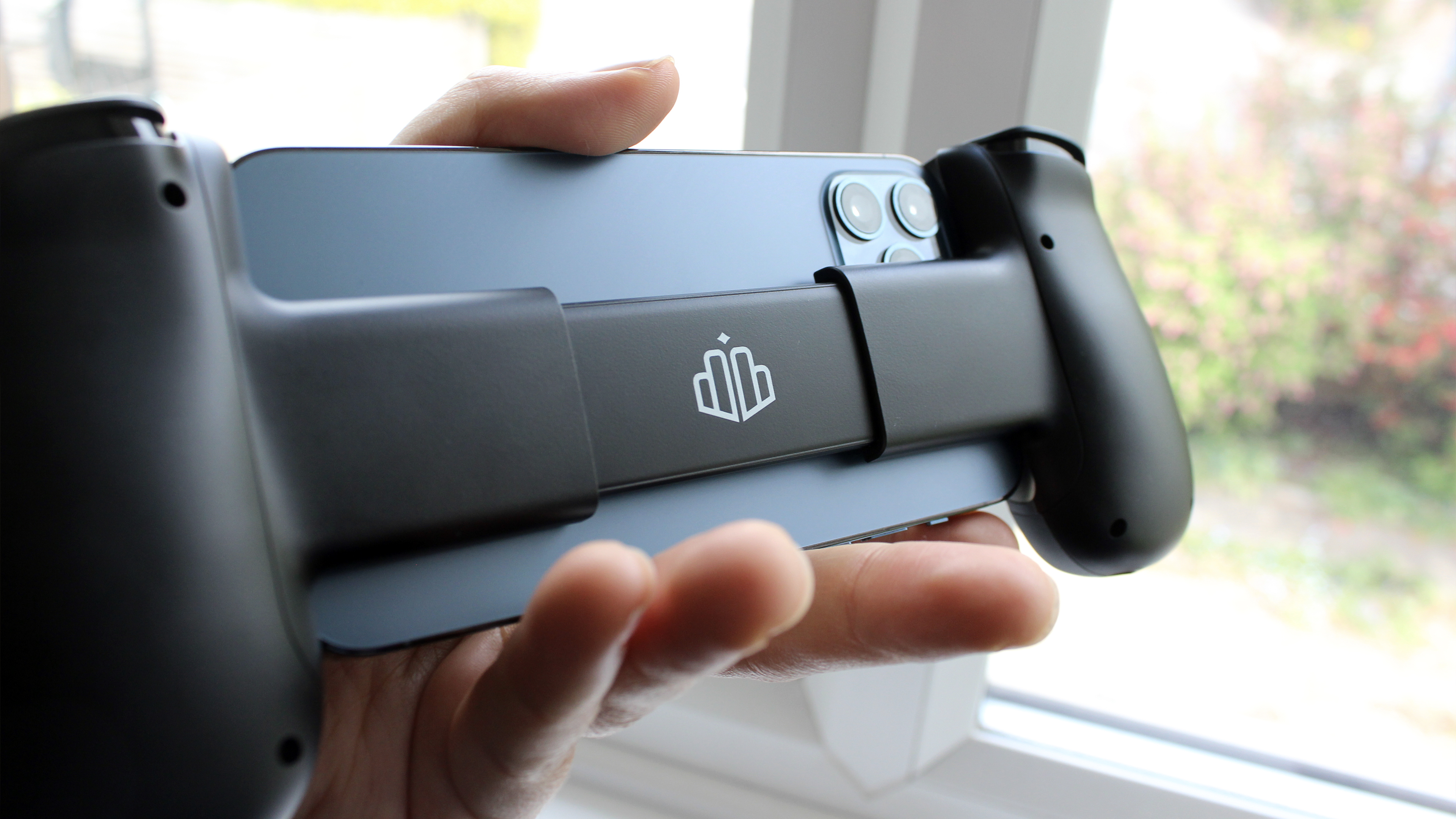
Backbone One: Connectivity and support
Particular attention was paid to two areas of connectivity: longevity and low-latency audio. The first is answered with a Lightning port for passthrough charging. As for the second point, I get how using truly wireless earbuds could be a cable-free dream, however, the latency can make rhythm games impossible to play, so I recommend using the convenient 3.5mm headphone jack.
Yes, you heard me right. The long-lost audio jack has made its way back to the iPhone! Granted, it’s via a controller adaptor, but it still feels weird to approach an Apple device with my old pair of Sennheiser cans and know they will work.
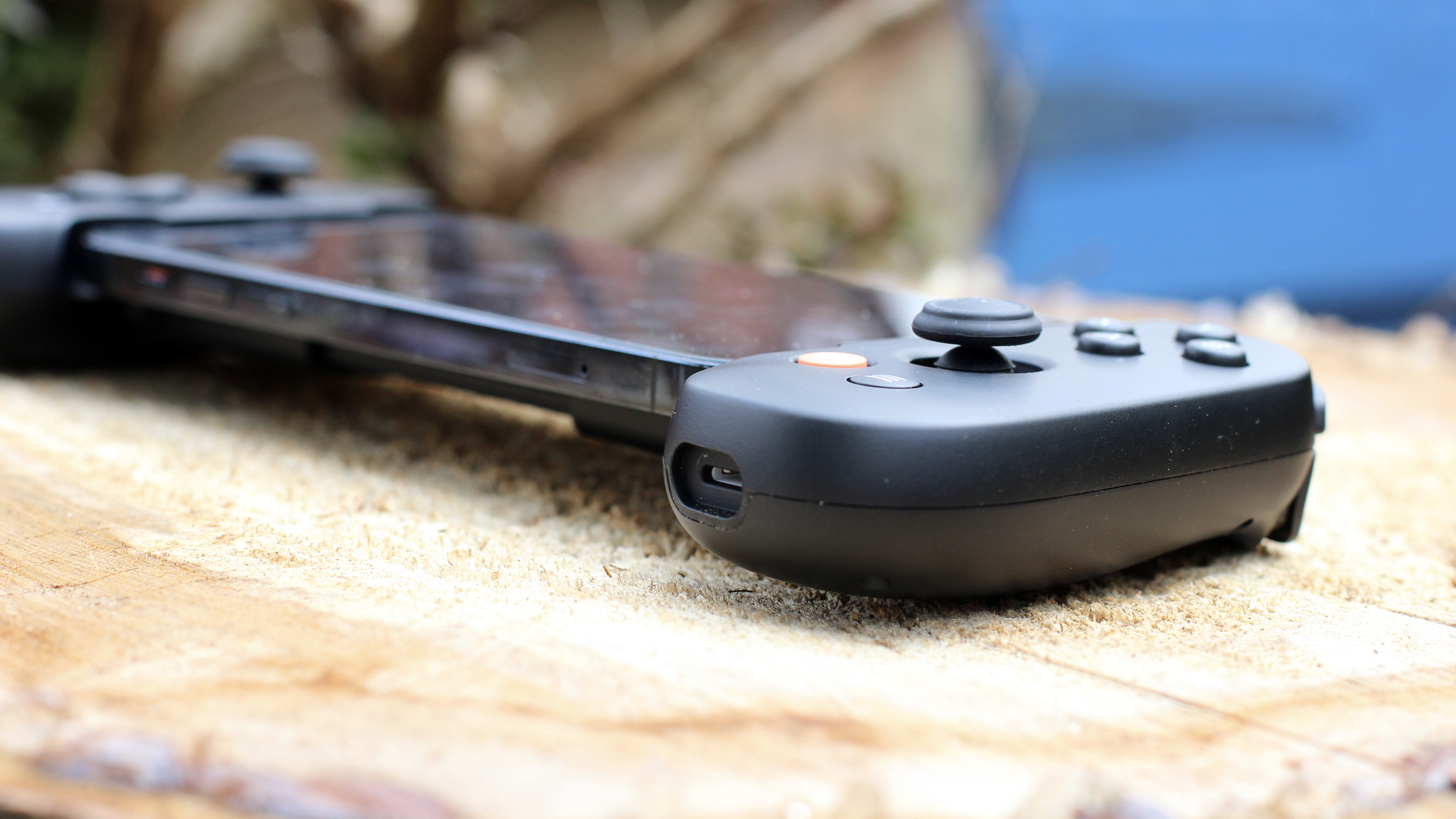
As for support, the Backbone One is available only in an iOS flavour at the moment — supporting iPhones dating back to the 6S. Will there be an Android version? When I asked the team at Backbone, the response was, “We don’t comment on future products and updates.” So, maybe?
Backbone One: Software
Now, about the app. It is not required in order to use the Backbone One, but is certainly recommended to get the most out of it.
Hit the Backbone button to open the app and you’ll be transported to a user friendly, all-in-one launcher that collates all your phone’s games and gaming apps into one hub, even making Apple Arcade suggestions and general recommendations about what to play.
This is the secret sauce that takes the Backbone from a controller adaptor to a portable console solution for mobile gaming, making it easy to forget you’re even playing on a phone at times.
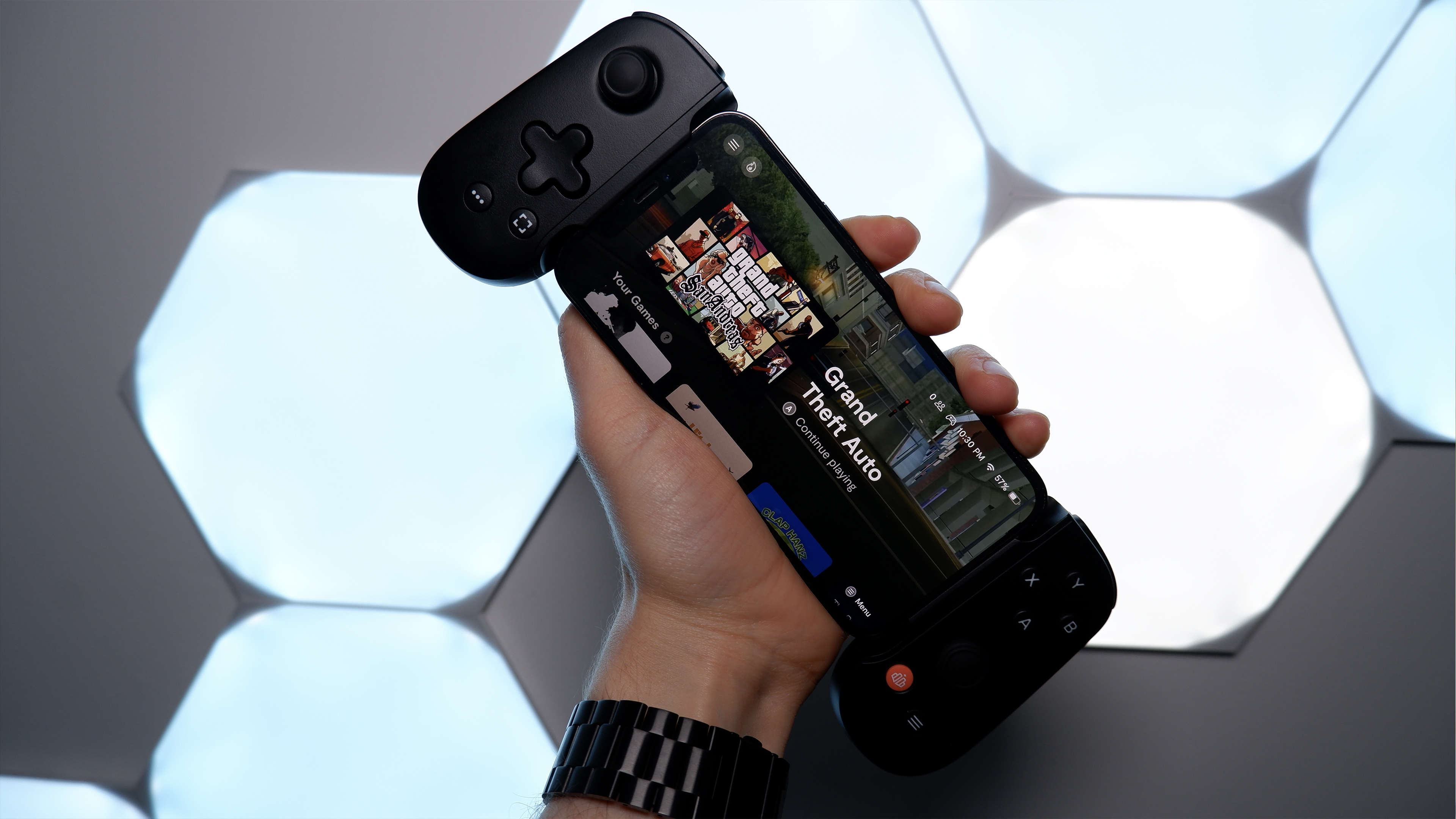
Going one step further, there are screenshot and gameplay recording functions (up to 1080p 30 fps) that are accessible by pressing the capture button. And to immortalize those moments of greatness, you can easily share them from the app directly to Snapchat, Instagram Stories, FB Messenger and more.
Limited social features is one of the drawbacks to the Backbone One. There are some really nice integrations here, such as notifications when your friends start playing games and easy-to-use party chat functionality, but they are limited to people who own the Backbone hardware. I get the need for exclusive features, but this is potentially harming the experience for owners.
If anyone at Backbone is reading this, may I recommend expanding the party chat feature and maybe adding Discord compatibility? With this feature, I can talk to my friends who use other controllers while playing, and I’m not cast out of the group like a PS3 player in a sea of Xbox 360 owners.
Bottom Line
If you are looking for the key that finally unlocks the potential of mobile gaming, you’ve found it in the Backbone One.
The ergonomic design fits nicely in your hands, the buttons have that same tactile feel you’d expect of any console controller, and the pass-through ports mean you can easily play for hours on end.
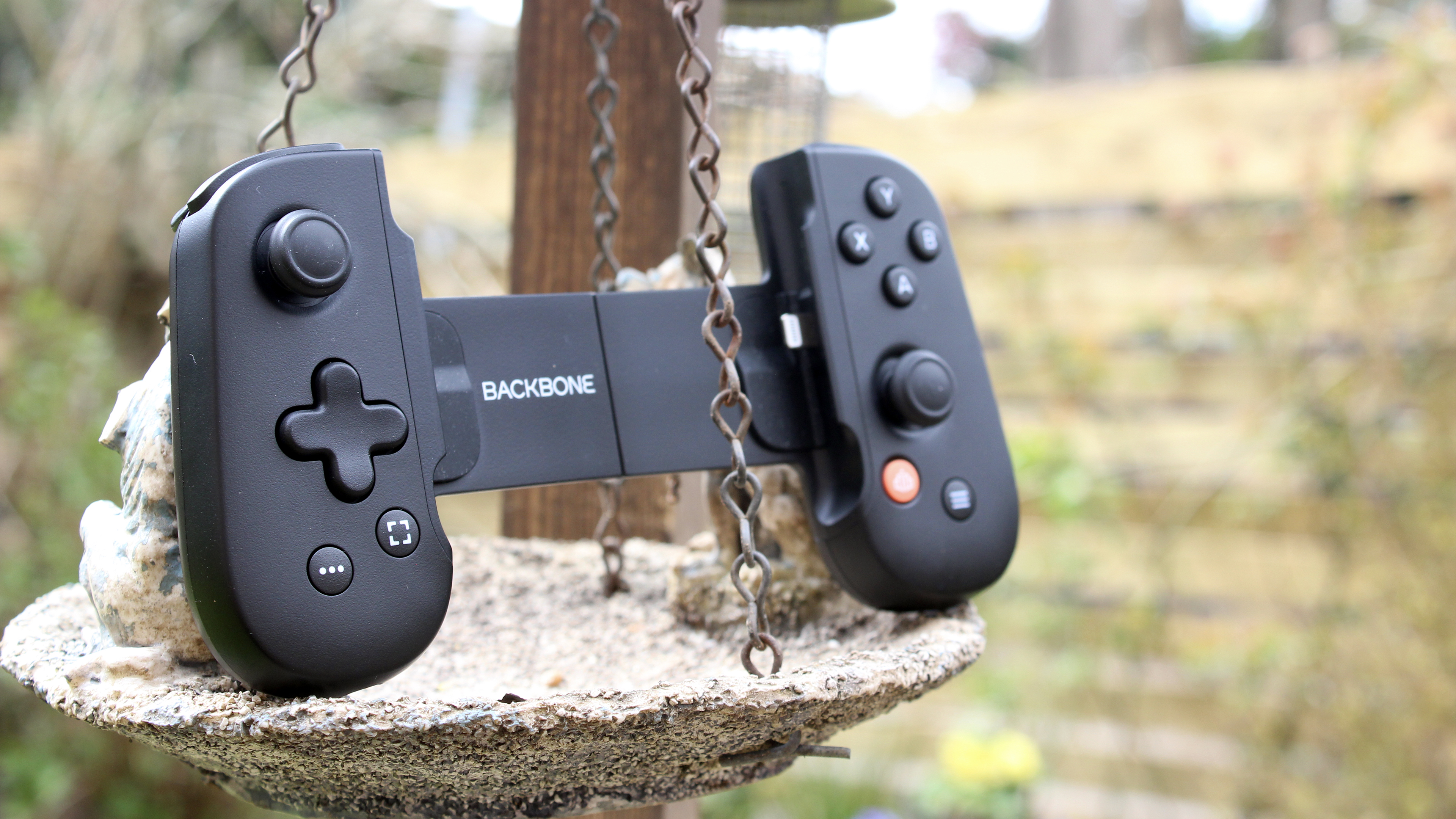
With the Backbone app creating a seamless, polished experience between software and hardware, you’ll have a hard time putting this down. The tailored UI makes finding something new to play a joy through its continuously updated discovery panels.
Could the whole thing be better? Sure. Nothing is perfect. The fact that you need to remove your phone case adds a level of anxiety for clumsy people like myself; party chat and social elements are a little half-baked and exclusive to the Backbone hardware with no compatibility across other devices; and the price is steep when you could buy a phone mount for your current console controller.
But for what you get, this is a brilliant controller. It’s mobile gaming’s answer to the Nintendo Switch with a vaster selection of games to play, along with PlayStation and Xbox remote play when your girlfriend is watching Bake Off (that’s The Great British Baking Show to you in America).
Simply put, if you care about gaming and want to make the most of what your iPhone is capable of, the Backbone One is a seriously good option.

Jason brought a decade of tech and gaming journalism experience to his role as a writer at Laptop Mag, and he is now the Managing Editor of Computing at Tom's Guide. He takes a particular interest in writing articles and creating videos about laptops, headphones and games. He has previously written for Kotaku, Stuff and BBC Science Focus. In his spare time, you'll find Jason looking for good dogs to pet or thinking about eating pizza if he isn't already.
